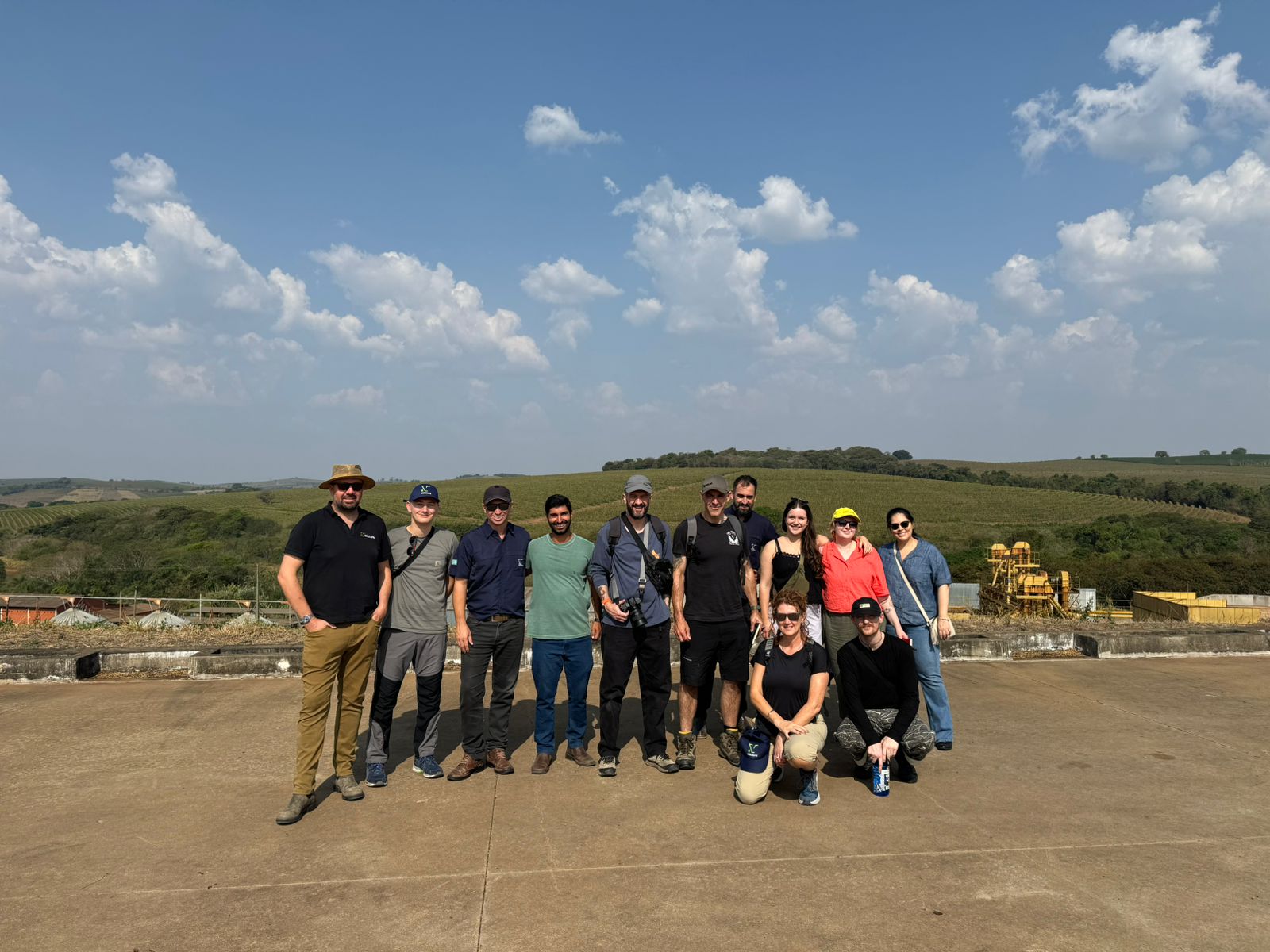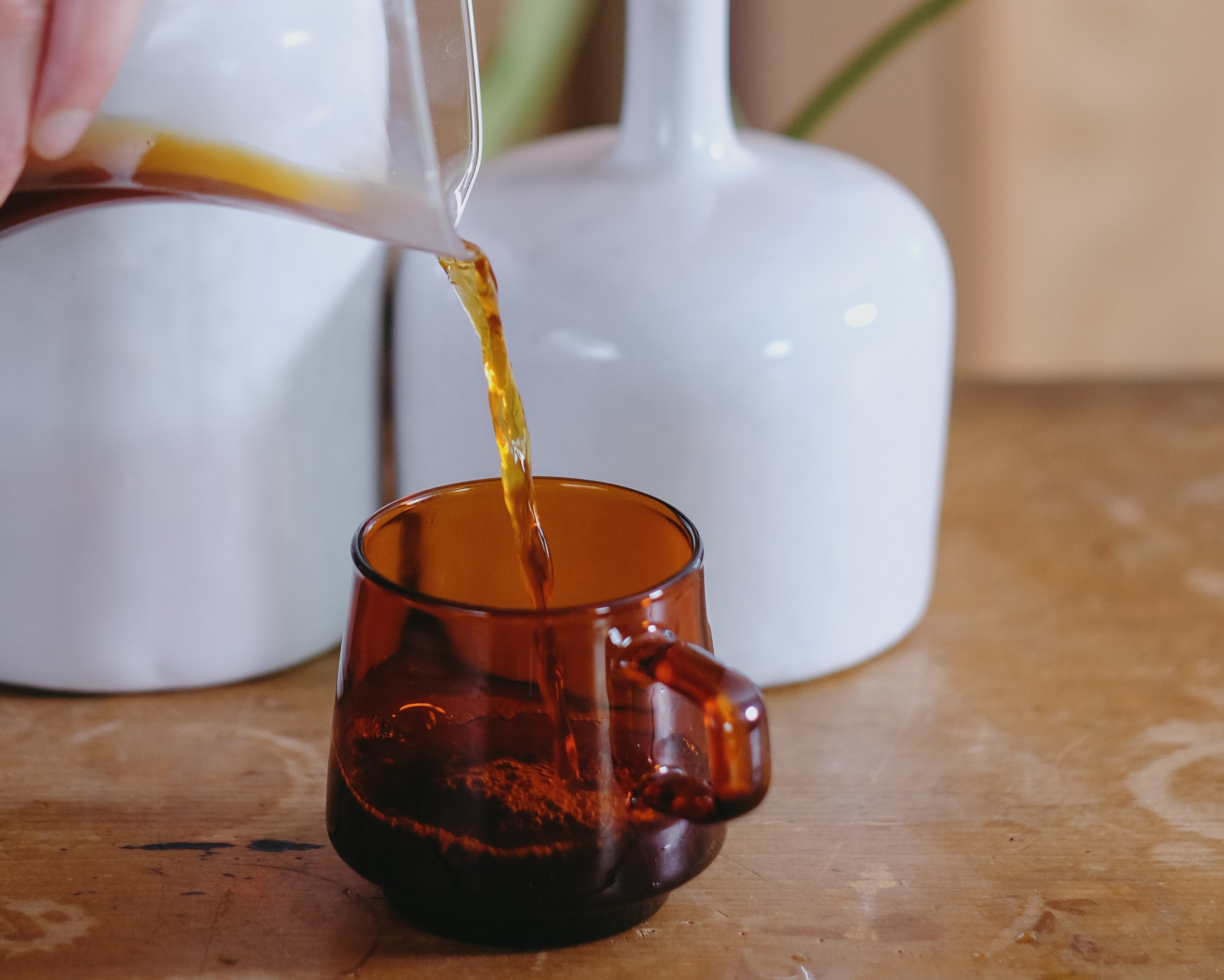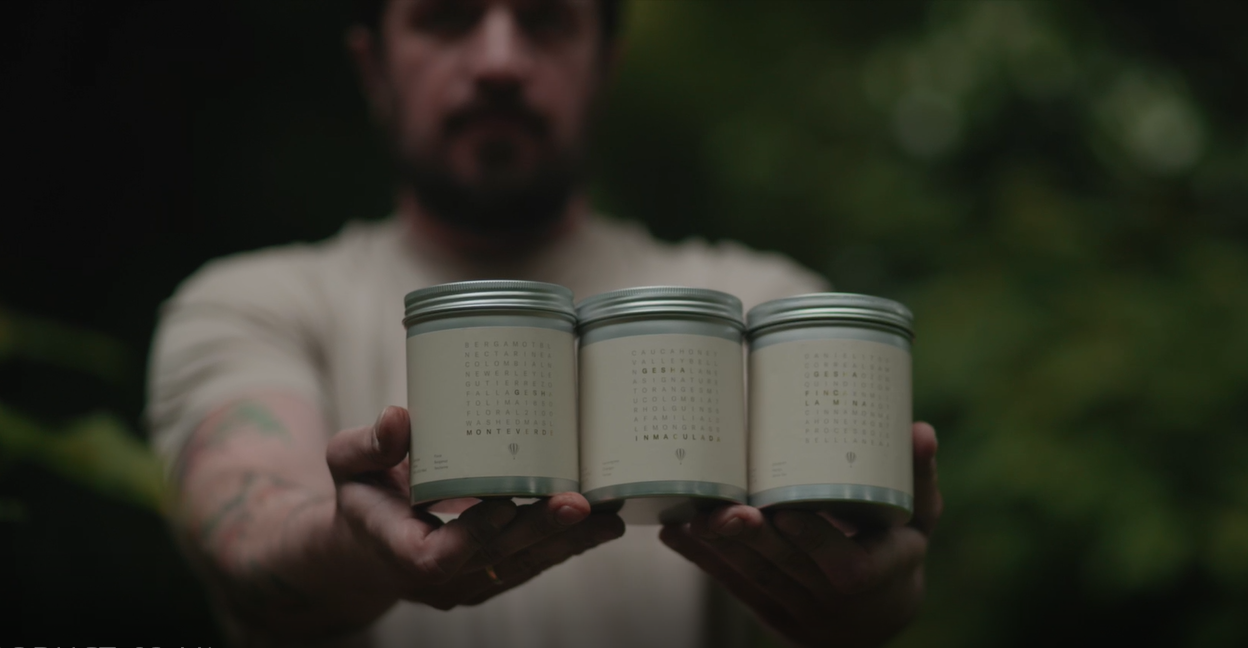
Sustainable Farming in Focus: Gail’s Visit to Brazil’s Coffee Producers

At Bell Lane Coffee, we believe that to truly appreciate the essence of a great cup of coffee, it’s essential to connect with the producers who cultivate it. Travelling to the origin allows us to strengthen relationships with farmers, understand their sustainable practices, and support the communities that make every cup possible This year, Gail from our team had the incredible opportunity to visit Brazil, one of the world’s largest coffee-producing countries. What she found there was more than just coffee farms – she encountered passion, dedication, and a deep connection between the farmers and their land.
In this blog, Gail shares her experience visiting the farms and cooperatives that are behind the coffees we love. It was a journey that took her from the rolling hills of Minas Gerais to the bustling port of Santos, giving her a firsthand look at the entire supply chain that brings coffee from the tree to your cup.
Day 1: Volcafe Mill & Warehouse
Gail’s trip began with a visit to the Volcafe Mill and Warehouse in Varginha, Sul de Minas. The mill plays a critical role in processing and storing coffee from hundreds of farms. Agronomist Alisson explained the Volcafe Way program, which focuses on sustainability and community projects, including everything from rainforest preservation to building sports facilities for local schools.
“It was incredible to see the scale of operations and the impact that coffee farming has on the local community,” Gail shared. "Seeing how the warehouse can store up to 100,000 bags of coffee a month really brought home the sheer scale of Brazil’s coffee industry.”
Day 2: Fazenda Bela Vista & Fazenda do Salto
The next stop was Fazenda Bela Vista, a 500-hectare farm owned by fifth-generation producer Otavio. What stood out to Gail was the farm's focus on sustainability. Water from the fermentation process is recycled to nourish surrounding crops, coffee skins are turned into organic fertiliser, and solar panels power the farm’s operations. Otavio’s commitment to the environment is clear, with 300 hectares of the land preserved for wildlife.
Gail also visited Fazenda do Salto, another family farm run by Otavio’s father’s side of the family. This farm, which started with just 20 hectares, has now grown to 850 hectares, with 400 hectares set aside for natural wilding. Gail was impressed by the Arara variety being cultivated there, and the farm’s long history in coffee production was evident in the charm of the 200-year-old farmhouse where they wrapped up the day.
“Nothing compares to standing on the soil of these farms and seeing the passion in the eyes of the people who run them. It’s about more than just coffee – it’s about family, history, and innovation.”
Day 3: Coopasv Cooperative & Smallholder Farms

On Day 3, Gail visited the Botrel family at Fazenda Corrego Fundo. Part of the Coopasv cooperative, this family has been farming for five generations. She was amazed by the legacy of the family’s coffee trees, especially the red bourbon variety, believed to be frost-resistant and of superior quality.
One of the most touching moments came when Gail visited Antonio at Fazenda São Lourenço. Antonio is a founding member of Coopasv, and his story of turning a 1.5-hectare plot into a thriving farm after facing unimaginable setbacks was a testament to the power of community and cooperation. Coopasv plays a critical role in supporting small producers like Antonio, providing them with access to finance, fertiliser, and markets. Despite the challenges of the past, such as losing crops to frost, the resilience of these farmers was truly inspiring.
“It was heart-wrenching to see what Antonio had gone through, losing his entire crop to frost, but his determination to rebuild and the support from Coopasv gave him hope. Walking through his regenerating farm was such a moving experience.”
Day 4: Volcafe HQ, Santos

The trip wrapped up with a visit to the Volcafe HQ in Santos, where Gail got a deeper understanding of the entire coffee supply chain. From the laboratory where samples are tested and cupped, to the massive Santos Port where coffee containers are shipped worldwide, she was able to see the final steps before the coffee reaches Bell Lane.
“It was fascinating to learn about the logistical side of coffee – the sheer scale of the port and all the produce being exported really put everything into perspective. So much care and effort go into getting our coffee from farm to cup.”
The Importance of Travelling to Origin
Gail’s trip to Brazil was not just an opportunity to see how coffee is grown, processed, and shipped; it was a chance to strengthen the relationships Bell Lane Coffee has with its producers. Travelling to origin allows us to see firsthand the incredible work being done by the farmers and cooperatives that make our coffee possible. It gives us a deeper appreciation for the sustainability efforts and innovations that are being introduced to protect both the land and the livelihood of farmers.
“The highlight for me was experiencing the deep connection between the farmers and their coffee. Every cup we serve tells a story of dedication, resilience, and passion – something you can only truly understand by visiting these farms in person.”





